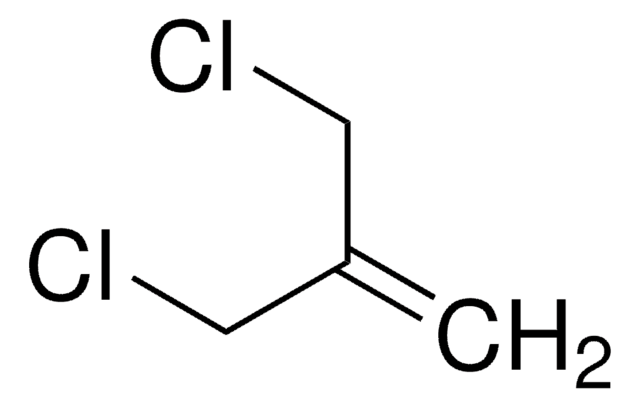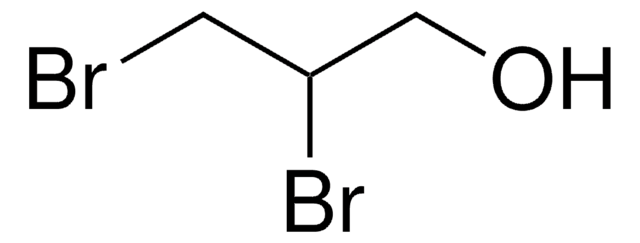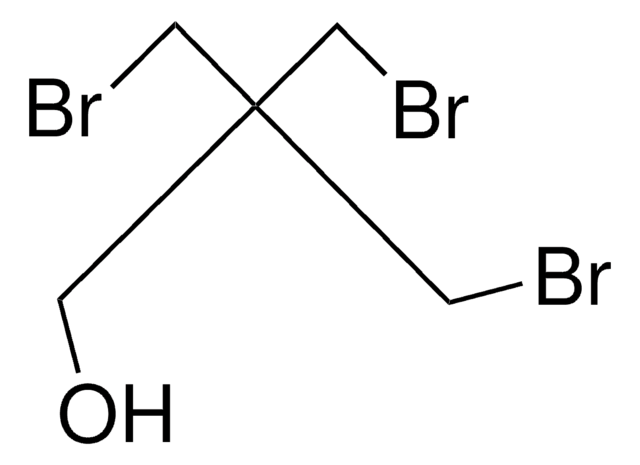372404
1,3-Dibromo-2-propanol
technical grade, 95%
Synonym(s):
α,γ-Dibromohydrin, α-Dibromohydrin, 1,3-Dibromo-2-hydroxypropane, 1,3-Dibromohydrin, 1,3-Dibromopropanol, 2-Hydroxy-1,3-dibromopropane, Glycerol α,γ-dibromohydrin, Glycerol 1,3-dibromohydrin
About This Item
Recommended Products
grade
technical grade
Assay
95%
form
liquid
refractive index
n20/D 1.552 (lit.)
bp
82-83 °C/7 mmHg (lit.)
density
2.136 g/mL at 25 °C (lit.)
SMILES string
OC(CBr)CBr
InChI
1S/C3H6Br2O/c4-1-3(6)2-5/h3,6H,1-2H2
InChI key
KIHQZLPHVZKELA-UHFFFAOYSA-N
Looking for similar products? Visit Product Comparison Guide
Related Categories
General description
Application
- To prepare the thioether ligand, used in the synthesis of palladium-phosphorus/sulfur nanoparticles.
- Preparation of 2-(alkoxy)propenyl bromide.
- Synthesis of 1,3-propanediamine derivatives connected to carbohydrates (sugar-pendant diamines).
- Chemical crosslinking of nine single substitution cysteine mutants of staphylococcal nuclease.
- Preparation of 1,3-dinitrooxy-2-propanol, via reaction with AgNO3 in MeCN at 80°C.
Signal Word
Danger
Hazard Statements
Precautionary Statements
Hazard Classifications
Acute Tox. 3 Oral - Carc. 2 - Eye Irrit. 2 - Flam. Liq. 3 - Skin Irrit. 2 - STOT SE 3
Target Organs
Respiratory system
Storage Class Code
3 - Flammable liquids
WGK
WGK 3
Flash Point(F)
116.6 °F - closed cup
Flash Point(C)
47 °C - closed cup
Personal Protective Equipment
Certificates of Analysis (COA)
Search for Certificates of Analysis (COA) by entering the products Lot/Batch Number. Lot and Batch Numbers can be found on a product’s label following the words ‘Lot’ or ‘Batch’.
Already Own This Product?
Find documentation for the products that you have recently purchased in the Document Library.
Customers Also Viewed
Our team of scientists has experience in all areas of research including Life Science, Material Science, Chemical Synthesis, Chromatography, Analytical and many others.
Contact Technical Service













